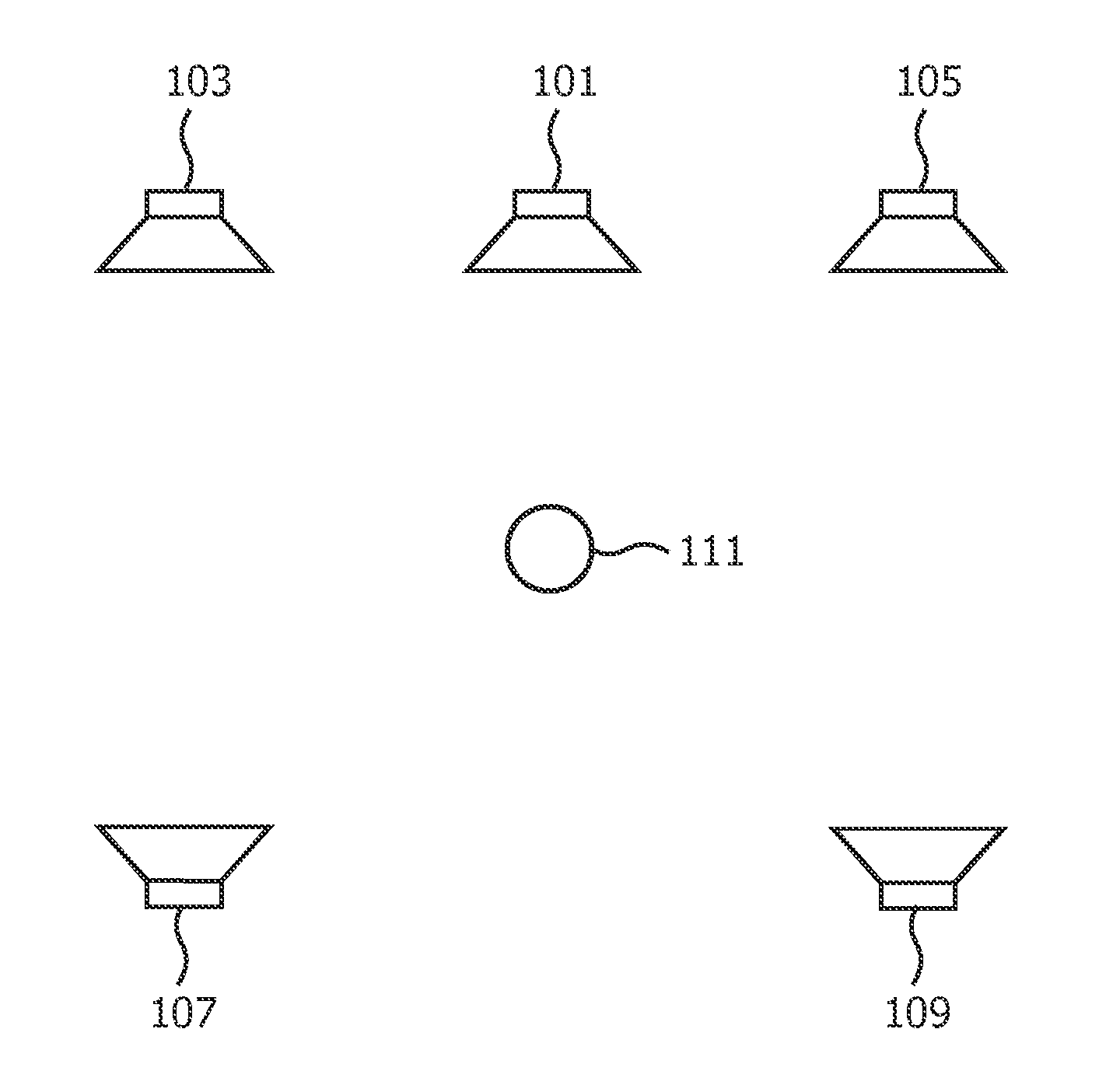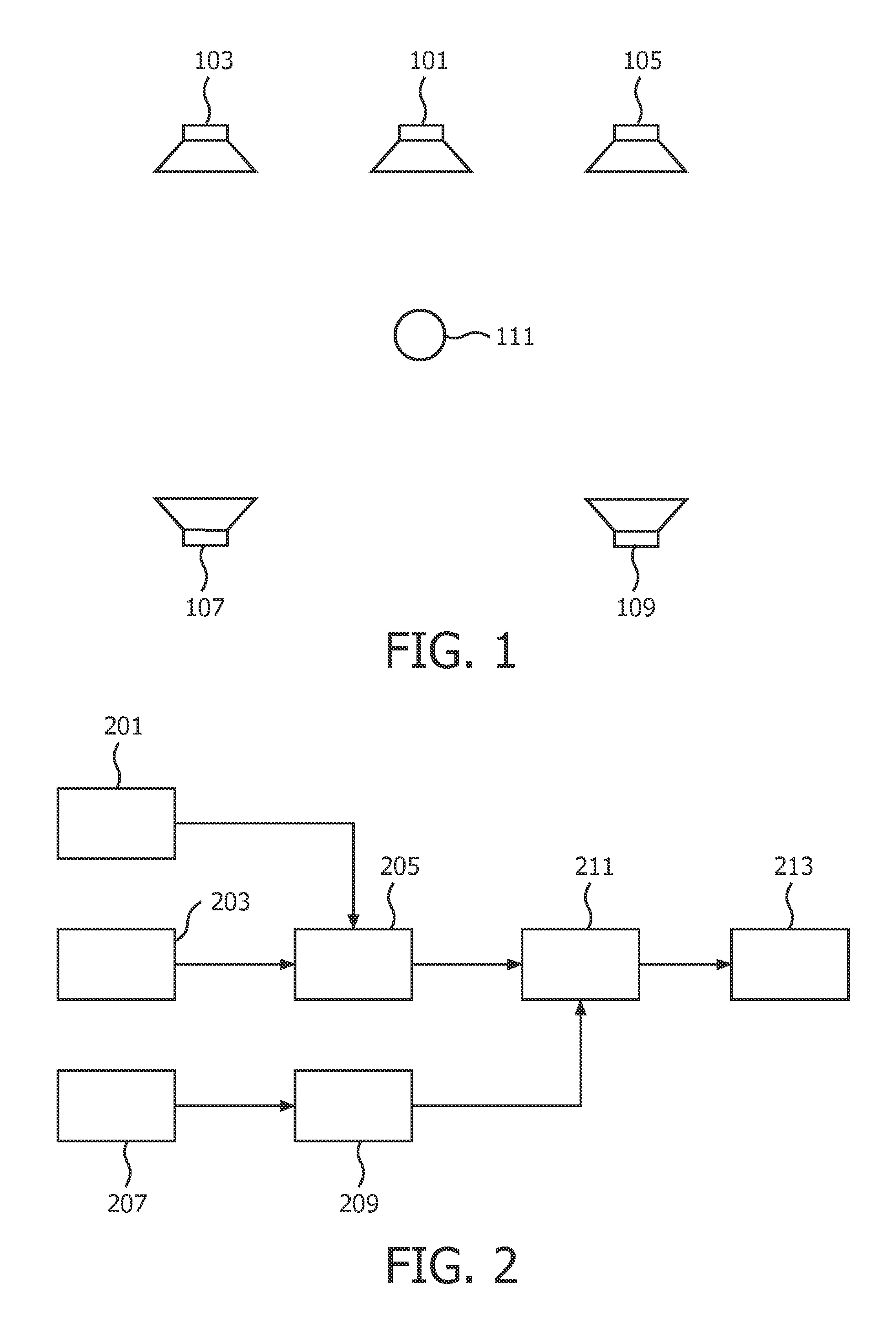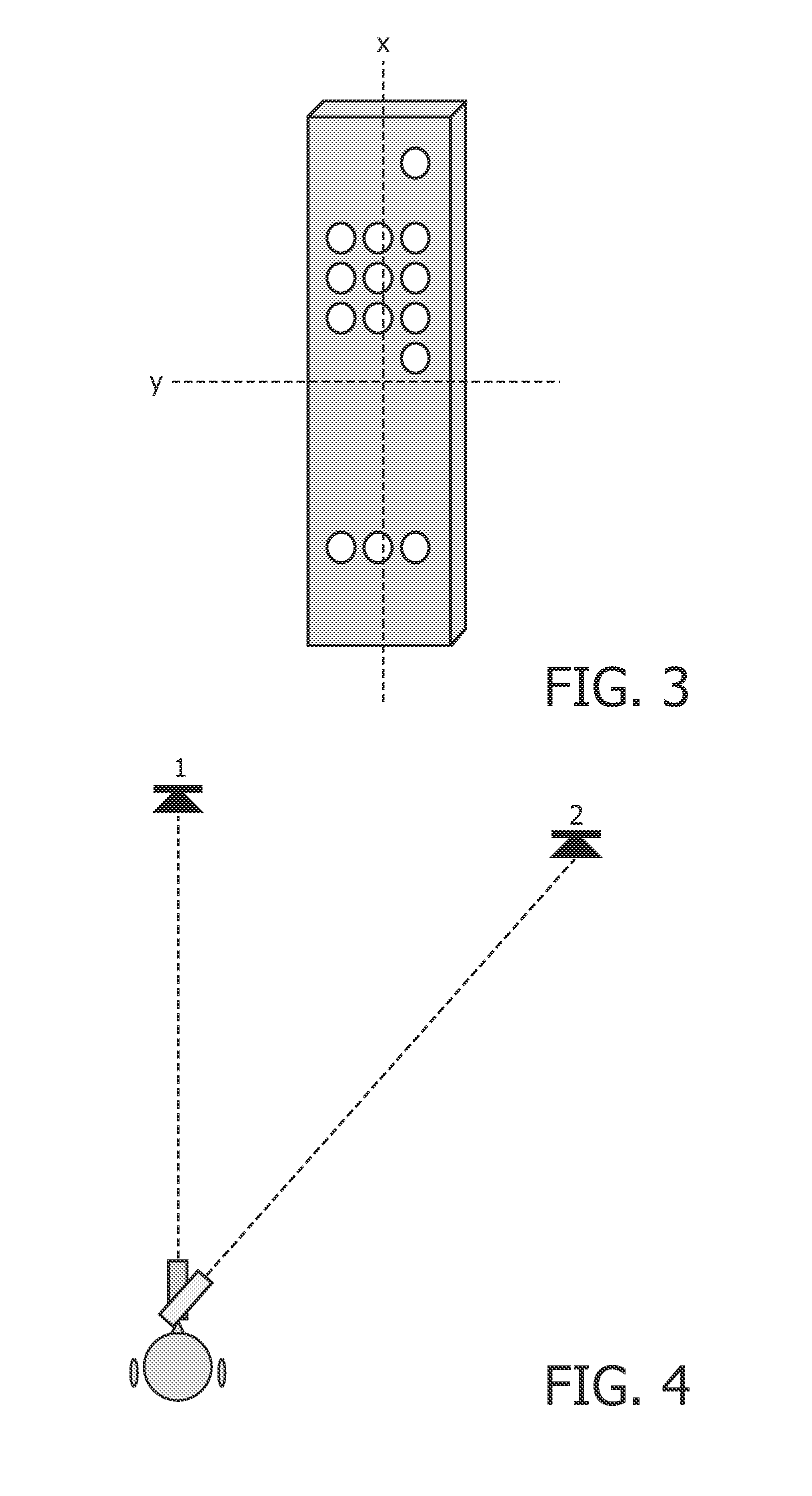Estimation of loudspeaker positions
a loudspeaker position and position technology, applied in the direction of direction finders, loudspeaker enclosure positioning, instruments, etc., can solve the problems of increasing complexity and variation of sound systems, affecting the practicality of use, and the manual setting of individual parameters is quite cumbersome and impractical for the typical user, so as to achieve low cost and low cost. , the effect of low cos
- Summary
- Abstract
- Description
- Claims
- Application Information
AI Technical Summary
Benefits of technology
Problems solved by technology
Method used
Image
Examples
Embodiment Construction
[0061]The following description focuses on embodiments of the invention applicable to speaker position estimation in a home cinema surround sound system. However, it will be appreciated that the invention is not limited to this application but may be applied to speaker position estimation in many other sound systems.
[0062]FIG. 1 illustrates a speaker system setup in a conventional five channel surround sound system, such as a home cinema system. The system comprises a center speaker 101 providing a center front channel, a left front speaker 103 providing a left front channel, a right front speaker 105 providing a right front channel, a left rear speaker 107 providing a left rear channel, a right rear speaker 109 providing a right rear channel. The five speakers 101-109 together provide a spatial sound experience at a listening position 111 and allow a listener at this location to experience a surrounding and immersive sound experience. In many home cinema systems, the system further...
PUM
 Login to View More
Login to View More Abstract
Description
Claims
Application Information
 Login to View More
Login to View More - R&D
- Intellectual Property
- Life Sciences
- Materials
- Tech Scout
- Unparalleled Data Quality
- Higher Quality Content
- 60% Fewer Hallucinations
Browse by: Latest US Patents, China's latest patents, Technical Efficacy Thesaurus, Application Domain, Technology Topic, Popular Technical Reports.
© 2025 PatSnap. All rights reserved.Legal|Privacy policy|Modern Slavery Act Transparency Statement|Sitemap|About US| Contact US: help@patsnap.com



